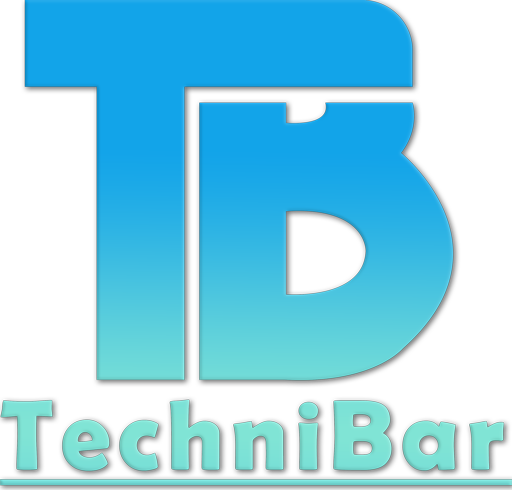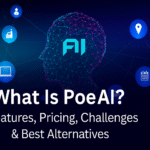Artificial Intelligence in 2025 will not just happen in the future; it’s evolving now. AI will be in charge of everything, from how we purchase and write to how businesses make decisions and governments formulate legislation. But a lot of new problems come up when things proliferate.
Are we doing enough to keep it under control? What jobs are at risk? Could AI impact how we talk and think about things?
This article will talk about five of the most prominent AI issues. Further , why AI needs to be controlled, the real threats it poses to society, the untapped potential of advanced models, the cultural effects of machine-generated content, and the future of AI in content creation. It will help you understand the big picture and why it matters, whether you’re an AI aficionado, a business owner, or just curious.
What Artificial Intelligence in 2025 offers?
Let’s have a deeper look one by one.
1.The Urgent Call for AI Regulation
One of the most talked-about issues is whether countries are doing enough to control AI. A disturbing point was made in a recent piece named “America Can’t Wait 10 Years to Regulate AI”: a plan could stop US states from adopting their own AI policies for the next ten years. That’s ten years of AI making quick progress, and there might not be any safety precautions.
The difficulty is that the law doesn’t keep up with technology well. Almost every month, tech companies come out with new models. But authorities are still figuring out the basics, such as how to define AI, who should watch it, and what regulations should be in place. California and New York want to be able to safeguard their people. They say that waiting for the federal government to act will delay important protections for data privacy, bias and discrimination in algorithms, and the use of AI in recruiting, policing, and healthcare.
It isn’t simply a guess. Think about how AI algorithms decide who gets a loan or which CV stands out without human supervision or transparency. Without resources, we could let black-box technologies make significant decisions about our lives without answering anyone.
Problems and risks in society
Paul Tudor Jones, a billionaire hedge fund manager, said something recently that made me think: “AI rings every one of my alarm bells.” He believes AI might eliminate or change as many as 50% of all white-collar jobs in the next several years. It might sound wild, yet there are other people like him. People who work in economics, education, and even making software all have the same worries.
AI isn’t just taking over jobs that need people to do physical work anymore. It can write, code, design, and analyze and do all of these things faster and for less money. Let’s break this down.
AI can now:
- Write letters and ads
- Look at financial statements
- Make websites
- Do legal research
- Translate languages as they happen.
If these tools become popular, some departments may get smaller or go away. Even while AI is creating new kinds of occupations, people who lose their jobs may be unable to find new ones immediately. Many individuals don’t see this risk coming, making it even more important. They believe that only jobs that need little skill are at risk. But the truth is that AI is also coming for jobs that require knowledge. That’s why folks like Jones are calling for stronger oversight. They say:
- Putting a watermark on work made by AI
- Making rules about what is right and wrong for training data
- Running campaigns to let people know how AI will impact jobs.
2.Underestimated Potential of Advanced AI Models
There are real concerns, but there is also a lot of excitement about what AI could do. “AI Might Not Be Getting Enough Attention” The author contends that we still don’t credit these tools enough for how well they work. OpenAI’s GPT-4o, Google’s Gemini, and Anthropic’s Claude are new models that do more than speak. They can think deeply, learn from your words, and execute hard things in many languages, subjects, and formats. These models are extraordinary because they can:
- Change to meet the user’s manner and tone
- Speak numerous languages fluently
- Solve math problems and write code
- Connect data points across huge databases.
It provides fantastic assistance for students, researchers, developers, and even small businesses that can’t afford to hire a lot of people. For example, a business owner who works alone can use AI to
- Write blog entries
- Plan social media posts
- Read client feedback,
- Build a simple website.
While we’re scared about losing jobs, we should know these tools can help us accomplish more. When utilized effectively, AI can be a digital co-pilot that helps people get more done with less.
3. Cultural and Cognitive Impacts of Artificial Intelligence in 2025
Now, let’s talk about something that isn’t as technical but just as important: how AI transforms our thinking. The article “A.I. Is Homogenizing Our Thoughts” discusses a study that revealed that content made by AI tends to make human expression less varied.
In short, this means that when people use AI to write essays, emails, or stories, they often all sound the same. AI learns from the data it is given, which is mostly common, well-known patterns of language. It can generate “safe” and grammatically correct information but also strip away the quirks and creativity that make human communication unique.
MIT, Cornell, and Santa Clara University researchers studied how people wrote with and without AI. They discovered that people using AI tools usually chose the same words and tones.
- Ideas that were new and distinctive were thrown away.
- The cultural nuance and emotional depth were lessened.
In a broad sense, this could lead to a world where everyone sounds a little more normal. What makes this important? It’s crucial to have a lot of different ways of thinking. It helps society move forward by encouraging new ideas, innovation, and progress. If we use AI tools without thinking about them, we risk wound up in a culture that rewards being the same above being creative. That doesn’t mean AI is evil for being creative. It should help you think, not replace your thinking, just like a calculator does in math class. People who write, educate, promote, or make things should always ask themselves, “Am I saying something real, or just what the algorithm thinks sounds good?”
4. Future Trends in AI-Driven Content Creation
AI is transforming how we generate content, even if people are frightened. “The AI-Driven Blogging Revolution: Trends for 2025” has new tools that make writing, editing, and posting easier and faster. Bloggers, marketers, and influencers increasingly utilize AI to:
• Automatically improve for search engines (SEO)
- Make material more relevant to readers based on what they enjoy.
- Add animated visuals, charts, and videos
- Take a guess at which themes will do the best
This is changing things for independent creators and small teams that couldn’t compete with big media companies before. AI has enabled anyone with a laptop and an idea to start a content business. Let’s look at a simple example. For instance, you could write a blog post about how to travel without harming the environment. An AI tool can:
• Suggest popular subtopics based on Google searches
- Write a draft in your voice
- Add keywords and headings that are helpful for SEO
- Suggest where to insert images or videos
- Even translate it into five languages in a culturally right way.
But it comes with a responsibility once more. Just because AI can create all 10 articles in one hour doesn’t mean you should. Quality, honesty, and connection are still more important than quantity. It’s not about replacing human voices in the future of entertainment; it’s about appropriately making them louder.
Final words
Artificial Intelligence in 2025 pushes the limits so swiftly that most of us can’t keep up. On the one hand, there is a lot of hope: more access to information, better tools, and more work done. However, we take risks, such as losing our employment, becoming emotionally dependent, and losing our creativity. AI isn’t going anywhere; that’s the truth. It’s not a fad; it’s a change. But it’s not magic either.
People who use it make it excellent, fair, and helpful. So what’s next? · Take your job seriously when you regulate. Put in guardrails right away, not in ten years. Moreover, use AI wisely. Technology can help you get things done, but you should still do your thinking. Also, protect what makes us human. The most important things are still being original, kind, and moral. We don’t want to stop AI as we move forward. It’s to guide it such that it helps humans instead of the other way around.
FAQs
1. Is it true that AI will take over jobs in the office?
Yes, AI does several tasks independently, such as writing emails, finding legal information, and looking at data. But it’s more about switching jobs than eliminating them altogether. Having people watch over things is still very important.
2. Why do people want AI to be controlled right now?
Because AI is changing so quickly that rules can’t keep up. Without standards, there are risks, including bias, false information, and privacy violations. Some folks are worried that waiting too long could produce damage that can’t be fixed.
3. In what ways could AI be bad for creative thinking?
Often, AI-generated content follows the same patterns as other content, which can make it less unique. We could lose our voice, emotional depth, and cultural diversity if too many people rely on technology.
4. What are the benefits of employing AI to write blogs and other things?
AI helps you write drafts faster, improves SEO, and customizes content for different groups of people. It saves time and makes it easier for small groups and those working alone to get good content.
5. How can I use AI without depending on it?
AI isn’t a replacement; it’s a tool that can aid you. You can use it to develop ideas, organize your thoughts, or check your work, but you should always include your thoughts, feelings, and opinions.








